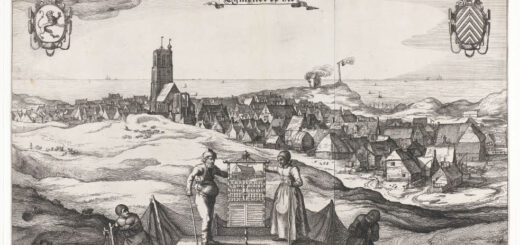Tuesday 9 January 2024 – Postgraduate Panel II [online]: Kelvin Beer-Jones (Birmingham), Leon Hughes (TCD), Esther Wilson (York)
This seminar is 5:30 pm – 6:30 pm GMT live online (registration link here), and later posted to our YouTube channel.
Session chair: James Bkaer
The IHR Digital History Postgraduate Panels showcase historical research using digital methods that is taking place in the postgraduate community. A series of short papers will be followed by a question and answer session.
Speaker: Kelvin Beer-Jones, University of Birmingham
Title: Human Data Archaeology.
Abstract: There are millions of instances of the names of persons (and their attributes) in the preserved records of the past. Archives, collections of manuscripts and documents of persons who lived in the 19c are distributed globally. Though archive data is uniformly organised with person name as the primary field, it should be left to the enquirer to make connections between persons (either within a collection or across many collections). And yet a natural ordering for human data persists largely unrecognised by academia – genealogy. If academia embraced genealogy and assigned every person with a unique identifier and used genealogical relationships to connect persons, then all human data throughout all digitised archives would become naturally and universally structured and accessible. Second order structures such as attributes (location, occupation, religion etc) would also become systematised by default, and a global efficient metadata structure naturally emerges.
Using a test case of 3000 political activists 1830 – 1870, to design, build, and use database and data visualisation technologies, my research has shown that researcher capability should not be prescribed, limited or made difficult by a top down approach to choice of technologies or infrastructures but left for the enquirer to determine (especially in today’s liminal digital humanities environment). But that does not mean data at source be unorganised. The allocation of unique identifiers to all past persons and the adoption of the disciplines of genealogy (through the placing of persons within family structures) is the biggest help that archivists and infrastructure providers can offer to the advancement of the discovery and bringing to light all digitised human data. The practise of human data science is Human Data Archaeology (HDA). The beneficiaries of HDA are not only historians but the whole of academia.
Speaker: Leon Hughes, Trinity College Dublin
Title: Digital Cartograph(ies) of Protest : Rhythms of Violent and Non-Violent Demonstrations in Revolutionary Paris, Summer 1792.
Abstract: Using GIS methodologies, this study maps the 81 incidents of violent and non-violent demonstrations between June 1 and September 6, 1792 identified by Micah Alpaugh (2014). It asks how French Revolutionary protests used urban space, and the rhythmanalysis of this spatial negotiation. This study concludes that demonstrations arose in three asymmetric waves across the 99 days as spatio-temporal crescendos beginning in Faubourg localities, reaching pan-Parisian proportions concentrated around political centralities (the National Assembly, Tuileries Palace and Palais Royale) before de-escalating back into localities. GIS methodologies hold potential for histories of experience/emotion for, in seeking to move past previous dominant logocentrism, it contends that by mapping revolutionary “events” one can begin to reconstruct the palimpsestic urban emotional/experience of bodies-in-space. This paper would also consider some of problems with GIS methodologies, as well as their potential as a dynamic quantitative methodology across historical disciplines.
Speaker: Esther Wilson, University of York
Title: “Digital dancing – Hamilton and History on Stage and Screen”
Abstract: Focussing on Hamilton: An American Musical, this short paper will begin to explore how digital technologies can facilitate complex transmedial storytelling. From the stage to the social media or cinema screens, this short paper will use a performative lens to highlight some of the challenges posed by the digital world for how we all (historians, performers and consumers alike) ‘do’ history.
